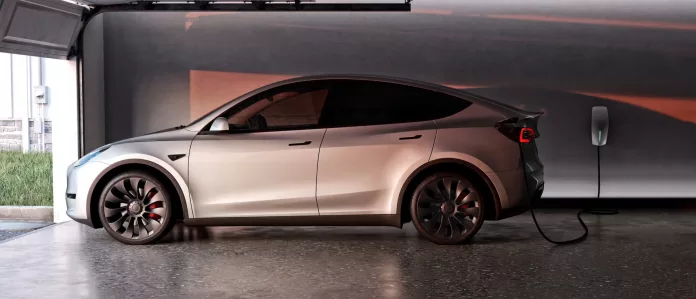Tesla, renowned for its pioneering spirit in electric vehicles, has emerged as a trailblazer within the industry, fostering a robust allegiance among its clientele. Insights from a recent Bloomberg Intelligence survey have delineated the growth momentum and consumer inclinations in the realm of electric vehicles, offering a compelling narrative of the sector’s trajectory.
Tesla’s Unrivaled Brand Loyalty
The survey highlights Tesla’s exceptional hold on the market with an 87% brand retention rate, significantly surpassing its closest competitors, Lexus at 68% and Toyota at 54%. The magnetic appeal of Tesla’s electric cars is clearly evidenced by this high retention figure, confirming Tesla’s prominent position in consumers’ minds and hearts.
Moreover, a striking 81% of those in the US contemplating a Tesla are newcomers, signifying a dynamic shift as customers are drawn away from rival EV brands. Tesla’s reputation for avant-garde technology and a commitment to eco-friendliness seems to be resonating strongly with consumers, and as its vehicle range grows, we can expect this pattern to amplify.
On the horizon, the forecast for battery electric vehicle penetration within the United States is poised to hit 25% by 2030. Despite obstacles such as charging infrastructure and vehicle affordability, the momentum for EVs is notably on the rise, propelled by their ecological benefits, cost efficiency, and lower emissions.
EV Purchase Considerations: BEVs Pull Ahead
Regarding potential vehicle purchases, 42% of those surveyed are gearing up for a battery electric vehicle as their next automobile, with 23% weighing the prospect of hybrid electric vehicles. This is a stark shift from the current scene where just 7% have opted for hybrid EVs and 9% for BEVs, up from last year’s 7%.
The loyalty of current BEV owners is also commendable, with a staggering 93% planning to remain with the same powertrain type for their next vehicle. This underscores the trust and satisfaction that electric vehicles offer their owners. In stark contrast, a mere 34% of traditional gasoline vehicle drivers are considering an electrified future.
This phenomenon, known as fuel-type stickiness, indicates a firm trajectory towards widespread EV adoption that is unlikely to regress. Owners of hybrids, plug-ins, and full-electric vehicles are realizing that the advantages of an EV, like less noise, lower maintenance costs, and reduced emissions, prevail over any possible drawbacks.
Addressing the Challenges of EV Adoption
Despite the rosy outlook, challenges do persist. Major manufacturers such as Tesla, GM, and Stellantis are striving to introduce cost-effective EVs by 2026, though concerns about charging infrastructure, battery range, and charging times continue to be predominant apprehensions for consumers. It is imperative for the industry to confront these issues head-on to secure enduring EV adoption and growth.
In essence, the market trajectory, steered by Tesla’s dominance and the burgeoning adoption of electric vehicles, hints at a future full of innovation and eco-conscious transportation choices. As electric mobility garners mainstream appeal, the promise of a greener planet and forward-looking transportation solutions grows ever brighter.


























